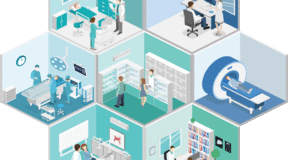When you first walk in to Dr. Homer Tien’s office at Ornge, the provider of high-quality air ambulance service and medical transport to people who are critically ill or injured for the province of Ontario, it’s hard not to be impressed by the breadth of his accomplishments. As a young student, Tien joined the Canadian Armed Forces to pay for medical school, a decision which would propel him to a long and distinguished career in both military and civilian life. With service in both the Yugoslavia peacekeeping and Kandahar combat missions as a staff general surgeon, Tien would reach the rank of Colonel and be awarded the Order of Military Merit, presented to Canadian Forces members who demonstrate dedication and devotion beyond the call of duty. Civilian time at Sunnybrook Hospital in Toronto as the Medical Director for the Tory Regional Trauma Centre, Canada’s largest trauma unit, along with various other research chairs and honours, round out the credentials of someone who has been on the frontlines of Canadian trauma healthcare, sometimes literally, for over 20 years.
Ornge, Ontario’s taxpayer-funded medical transport service, has been in the news in recent years due to allegations of lavish executive compensation and a subsequent 2012 criminal investigation. So it’s no surprise that someone with Tien’s stature was brought in to help right the ship as part of the new management team put in place in 2013. However, Ornge deals exclusively in medical transport, either via helicopter or fixed wing aircraft. The medical logistics of getting a patient quickly to the right facility is their core business, which isn’t something a crack trauma surgeon necessarily knows anything about. Tien’s military background was the main reason he was able to step into the Chief Medical Officer role. “How a patient arrived at the Sunnybrook trauma room was always a bit of a blur to me, but the planning of pre-hospital to hospital was always part of the military side of thinking about care,” says Tien. “So how we organized our pre-hospital system in terms of communications and prioritization came with the military experience.”
To an outsider, Tien would seem to be a perfect fit for Ornge; someone with both experience in medical logistics and a background in trauma care. Anyone who’s watched “Grey’s Anatomy” knows that medical helicopters only handle the most serious of patients; critical, time-sensitive cases where every second counts. But Tien dispelled the idea that life at Ornge is all pulse-pounding action, “Trauma is probably a quarter to one-third of our work. Two-thirds of our work is actually in the North, where the distances are quite vast and hospitals are farther apart. For First Nations, some communities are air accessible only, meaning we will fly in for the whole gamut of acute medical care.”
“Two-thirds of our work is actually in the North…where for First Nations, some communities are air accessible only, meaning we will fly in for the whole gamut of acute medical care.”
Tien’s focus since coming to Ornge has been broadening the company’s role in Ontario’s healthcare system, moving from the core transport focus to offering services like telemedicine. “We do transport, but transport is a means to accessibility of healthcare itself,” he says. “Through our “base hospital” program, we leverage the fact that we are the only ones that do critical-care paramedicine for the province to give advice to a rural physician who is requesting transport, allowing them to potentially treat the patient on scene.” By using its existing resources and expertise in transport of the sickest patients to help frontline partners, Ornge reduces the demand of its services and pushes out its medical expertise into the more isolated regions of the Ontario healthcare system.
As a trauma surgeon in military and civilian settings, Tien has a special appreciation for both the physical and mental stresses that healthcare work can entail. He talks openly about the patients he treated that affected him the most, “Everything with kids are always the tough ones, especially when you have your own,” he says. As with most healthcare professionals, Tien believes that not personalizing his patients in these instances is his best line of defense to cope with the difficult things he sees. Yet he also believes that more can be done on an organizational level to help those working in healthcare cope with what they may see on the job. Although recent legislation calling for a strategy to deal with first responders’ PTSD excludes nurses, he sees it as a good first step, and believes that nurses will be included eventually.
The question is what the strategy should be once that inclusion is achieved, and Tien understandably draws on his military experience to answer that question. One surprising take is the ineffectiveness or even harm that can come from one of the most common processes currently in practice across Ontario: critical incident stress debriefings. “In the 90s when preparing to go to Yugoslavia as a GP, I took all the critical incident stress debriefing training to prepare for the conflict. I will say that psychiatrists who do know the field well have moved away from that since then because there is a belief people will revisit a trauma with peer counsellors who may not be as skilled in diagnosis and treatment.” So the emphasis shouldn’t be on the more traditional methods, but rather on wholesale change in how hospitals view their employees’ mental health. For Tien, the key to building resiliency in personnel is about organizations encouraging good mental health hygiene on a proactive basis. Whether it’s moderating your regular alcohol intake (i.e. not being dependent on that nightcap to get you to sleep each night), getting exercise, regular sleep (perhaps the hardest to do on shift work) and making sure your support network of friends and family is strong, building up your mental well-being for the inevitable hardships nurses and doctors see is something that medical organizations need to get better at emphasizing to new healthcare professionals.
That leads to another, bigger cultural change that Tien believes needs to take place within most civilian health organizations. When asked about younger Ontario nurses feeling stigmatized when mental health concerns were brought up in the workplace and fearing that they would appear to be “too weak to handle the job,” he acknowledged the tougher, macho culture that can exist in healthcare workplaces and advocated a more transparent and systemic environment for mental health concerns to come out. “In the military, for 30 years since Yugoslavia, it’s been about breaking down this barrier to talk about being scared during this or that rocket attack. So certainly, you can overcome it. If the military can now talk about it openly (which they do), there’s no reason healthcare can’t do so as well.” Tien pointed to proven methods like identifying natural peer counselors (natural leaders in a department) in an organization, empowering them with mental health training, and then allowing personnel to approach them with concerns on their own terms.
“In the military, for 30 years since Yugoslavia, it’s been about breaking down this barrier to talk about being scared. If the military can now talk about [mental health] openly (which they do), there’s no reason healthcare can’t do so as well.
So whether it’s being more proactive with your mental well-being to build up that resiliency, or encouraging different hospitals and health organizations in Ontario to begin the conversation on mental health transparency, Tien is optimistic about how mental health is beginning to be addressed in Ontario. ”It will come. I was talking to some colleagues the other day, and I can see it coming.” he says, in reference to nurses being recognized under the first responder legislation, and the mental health awareness developing within the healthcare profession. A welcome sentiment from someone who has seen first-hand why it is so urgently needed.







